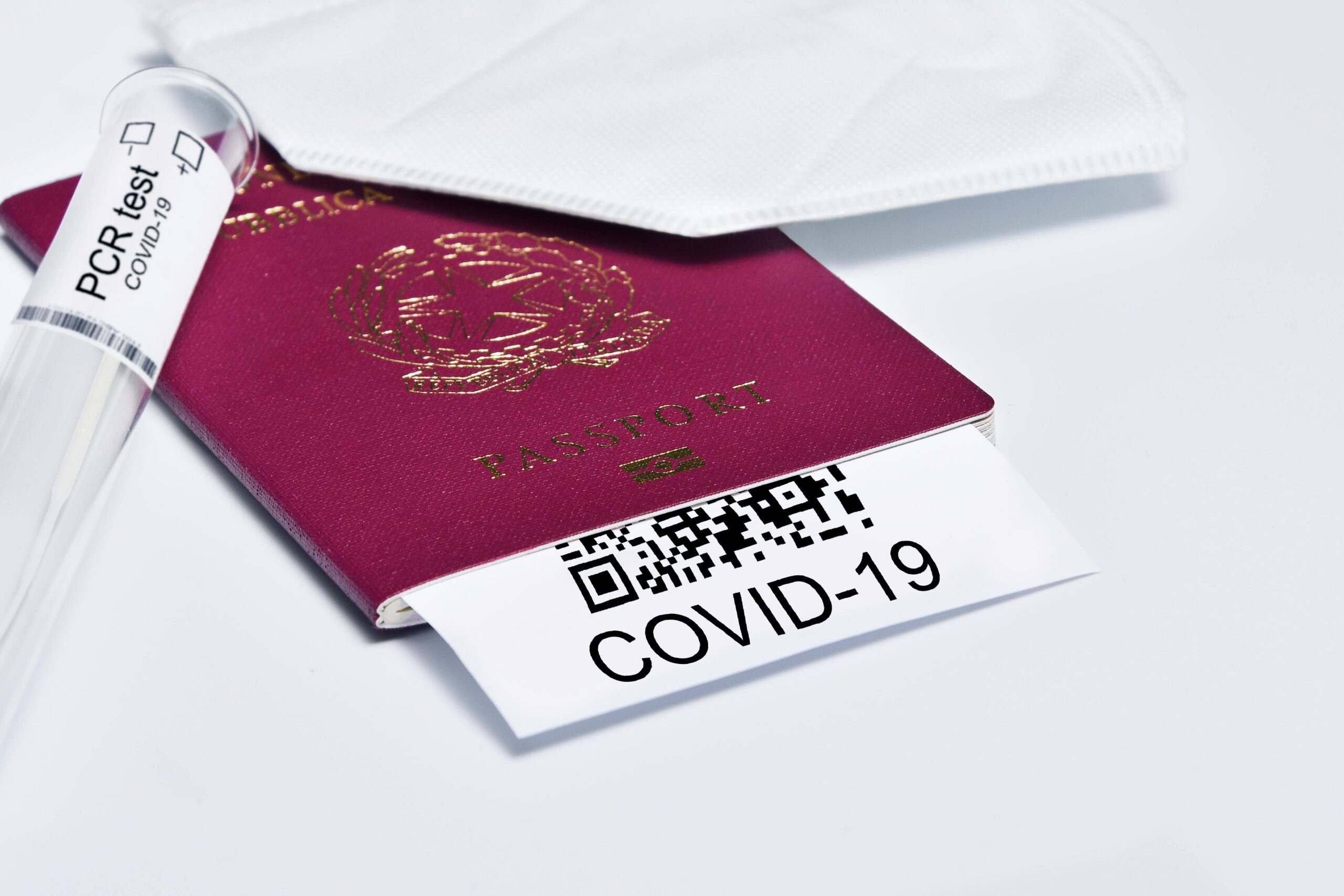For many aspiring newcomers, securing a valid job offer is the most crucial step toward building a new life in Canada. Employer-driven immigration programs are specifically designed to connect Canadian businesses with the global talent they need to thrive. However, the path is fraught with potential pitfalls, and a non-genuine job offer can lead to devastating consequences. This guide, drawing on extensive experience in Canadian immigration, provides a comprehensive overview of what you need to know to navigate these pathways successfully, from understanding the core programs to identifying and avoiding costly scams.
Table of Contents
- The Indispensable Role of a Genuine Job Offer in Employer-Driven Immigration
- Navigating Canada’s Premier Employer-Driven Immigration Pathways
- Exposing the Deception: Critical Red Flags of a Fraudulent Job Offer
- The Grave Repercussions of Misrepresentation in Your Immigration Application
- A Prudent Checklist: How to Authenticate Your Canadian Job Offer
- Frequently Asked Questions
The Indispensable Role of a Genuine Job Offer in Employer-Driven Immigration
In the world of Canadian immigration, a “genuine” job offer is far more than a simple contract. It is the bedrock upon which your entire application for permanent residence may rest, particularly in employer-driven streams. Immigration, Refugees and Citizenship Canada (IRCC) places immense importance on the authenticity of the relationship between an applicant and a Canadian employer. This scrutiny is designed to protect the integrity of the immigration system and ensure that these programs are filling legitimate labour market needs, not serving as a backdoor for those willing to circumvent the rules. A genuine offer signifies a real job opening that a Canadian employer has been unable to fill locally, and a sincere intention from you, the applicant, to accept that position and work for that employer upon arrival. IRCC officers are trained to assess this genuineness from multiple angles, looking beyond the paperwork to evaluate the context of the offer and the credibility of both parties. This includes verifying the employer’s operational status, their history, and the reasonableness of the job offer itself. They also assess your qualifications and experience to ensure they align with the role, reinforcing that you were hired for your skills, not simply to facilitate an immigration application.
Navigating Canada’s Premier Employer-Driven Immigration Pathways
Canada has developed several innovative employer-driven programs aimed at distributing the benefits of immigration across the country, especially to regions that need it most. Understanding these pathways is the first step in aligning your job search with a viable route to permanent residency. Three of the most prominent programs are the Atlantic Immigration Program (AIP), the Rural Community Immigration Program (RCIP), and the forthcoming Francophone Community Immigration Program (FCIP).
The Atlantic Immigration Program (AIP) is a flagship initiative designed to attract and retain skilled immigrants in Canada’s four Atlantic provinces: New Brunswick, Nova Scotia, Prince Edward Island, and Newfoundland and Labrador. A key feature of the AIP is that employers must be officially “designated” by their provincial government to participate, which adds a layer of vetting and legitimacy to the process. Job offers under the AIP must be full-time, non-seasonal, and accompanied by a settlement plan for the candidate and their family, demonstrating a commitment to long-term integration.
Building on the success of its pilot predecessor, the Rural Community Immigration Program (RCIP) is set to become a permanent fixture. This program empowers smaller, more remote communities across Canada to directly select immigrants who meet their specific economic and social needs. The core of the RCIP is the community recommendation; you cannot apply without one. This means your job offer and your intention to reside in the community are closely scrutinized by local economic development organizations, ensuring a strong fit and a higher likelihood of retention.
The new Francophone Community Immigration Program (FCIP), launching in late 2024, aims to bolster French-speaking communities outside of Quebec. This program will also be community-driven, mirroring the successful model of the RCIP but with a focus on strengthening the demographic and economic vitality of Francophone minority communities. For French-speaking candidates, securing a job offer in one of these designated communities will open an exciting new door to Canadian permanent residence.
Exposing the Deception: Critical Red Flags of a Fraudulent Job Offer
The demand for Canadian job offers has unfortunately created a black market for fraudulent schemes. Unscrupulous individuals, often posing as recruiters or consultants, exploit the desperation of applicants by “selling” job offers for exorbitant fees. It is absolutely critical to understand that paying for a job offer is illegal in Canada and will lead to the refusal of your application and severe penalties. Protecting yourself requires vigilance and the ability to recognize warning signs. A legitimate recruitment process focuses on your skills and experience, not your ability to pay. Be wary of any process that feels transactional rather than professional. A real employer is investing in a future employee and will conduct thorough interviews and reference checks. Any offer that comes too easily or is contingent on a payment should be considered a major red flag. Always trust your instincts; if a deal seems too good to be true, it almost certainly is.
To help you safeguard your immigration journey, here is a list of key red flags that may indicate a fraudulent job offer or an immigration scam:
- Requests for Payment: This is the most significant red flag. You should never pay a recruiter or an employer for a job offer letter. Legitimate Canadian employers pay recruitment costs; they do not charge candidates.
- Guaranteed PR or Visa Approval: No one can guarantee a successful immigration outcome. The final decision always rests with an IRCC officer. Promises of guaranteed approval are a hallmark of scams.
- Vague or Unprofessional Communication: Be cautious of offers that come through unofficial channels like WhatsApp or personal email addresses (e.g., Gmail, Yahoo). Legitimate businesses use corporate email domains.
- Lack of a Formal Interview: A real employer will want to interview you to assess your skills and fit for the role. An offer made without any meaningful interview process is highly suspicious.
- Pressure Tactics: Scammers often create a false sense of urgency, pressuring you to make a decision or a payment quickly before the “opportunity” disappears.
- Job Offer Details are Unclear: A valid job offer must be in writing and contain specific details, including your job title, duties, salary, hours of work, and the employer’s contact information. Vague or incomplete offers are a warning sign.
The Grave Repercussions of Misrepresentation in Your Immigration Application
Submitting an application based on a fraudulent job offer falls under the category of misrepresentation, one of the most serious offenses in Canadian immigration law. The consequences are not merely a rejected application; they are severe, long-lasting, and can permanently damage your chances of ever coming to Canada. Misrepresentation is defined as directly or indirectly providing false information or withholding material facts related to your application. This includes presenting a purchased job offer as genuine. IRCC officers are highly trained to detect discrepancies and signs of fraud. They will cross-reference information, verify employer details, and assess the overall credibility of your application. If an officer has reason to believe your job offer is not genuine, you will be found inadmissible to Canada for misrepresentation. This results in a five-year ban from applying for any Canadian visa, whether for visiting, studying, working, or permanent residence. This finding is entered into Canada’s shared immigration database and can impact your applications to other countries, such as the United States, the UK, Australia, and New Zealand, due to intelligence-sharing agreements. Overcoming a finding of misrepresentation is incredibly difficult and makes any future applications significantly more complex. The risk is simply not worth it.
A Prudent Checklist: How to Authenticate Your Canadian Job Offer
Due diligence is your best defense against immigration fraud. Before you accept any job offer and certainly before you submit an immigration application based on it, you must take proactive steps to verify its legitimacy. This not only protects you from scams but also strengthens your application by demonstrating that you have engaged in a genuine employment process. Treat your job search as a professional investigation. Start with online research. Does the company have a professional website and a physical address that you can find on Google Maps? Do they have a social media presence or a LinkedIn page with real employees? A lack of a credible online footprint for an established business is a significant concern. Next, for specific programs like the AIP or RCIP, verify that the employer is officially designated. This information is typically available on the official provincial or community websites that administer these programs. A non-designated employer cannot issue a valid job offer under these streams. Finally, insist on a formal, written job offer letter on company letterhead. Scrutinize it to ensure it contains all the necessary details required by IRCC. Taking these steps will provide you with the confidence that your foundation for immigration is solid and authentic.
Frequently Asked Questions
What makes a job offer ‘genuine’ for Canadian immigration?
A genuine job offer is one that comes from a legitimate Canadian employer for a real job opening. The offer must be for a full-time, non-seasonal position, meet wage and skill level (TEER) requirements, and you, the applicant, must have the sincere intention to work for that employer.
What are employer-driven immigration programs?
These are Canadian immigration pathways, such as the Atlantic Immigration Program (AIP) and Rural Community Immigration Program (RCIP), that require an applicant to have a valid job offer from a specific employer in a particular region as the primary eligibility requirement.
What happens if I’m caught with a fraudulent job offer?
If IRCC determines your job offer is not genuine, you will be found guilty of misrepresentation. This leads to a five-year ban from entering Canada or applying for any Canadian visa, and it can negatively impact your ability to immigrate to other countries.
How can I verify if an employer is legitimate for a program like the AIP?
For programs like the Atlantic Immigration Program, employers must be officially designated by the provincial government. You can verify an employer’s status by checking the official list of designated employers on the respective provincial immigration website.
Talk to us to find out more. ->
The content above is not intended to provide legal advice or opinions of any kind and may not be used for professional or commercial purposes.







